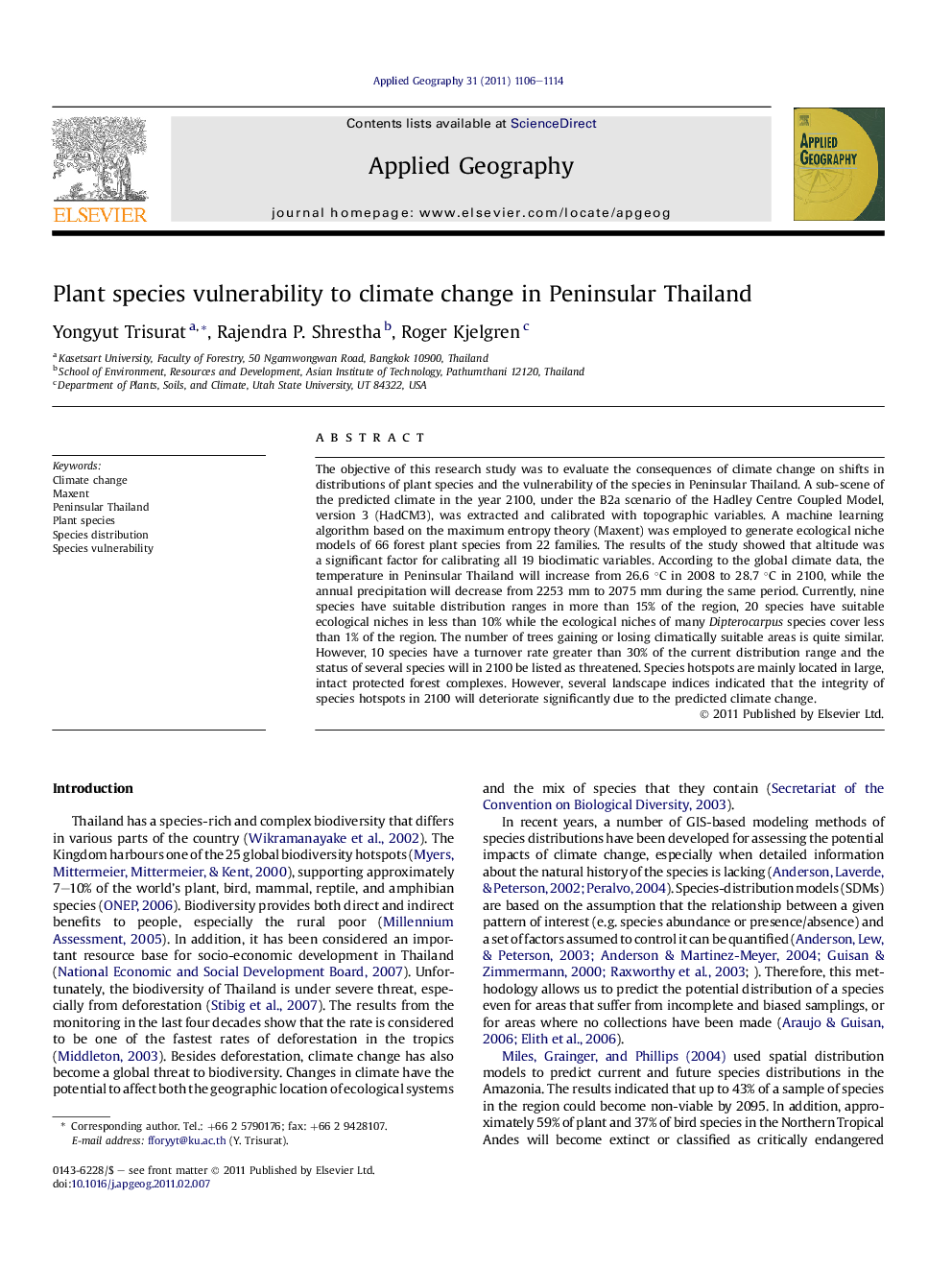| کد مقاله | کد نشریه | سال انتشار | مقاله انگلیسی | نسخه تمام متن |
|---|---|---|---|---|
| 83638 | 158728 | 2011 | 9 صفحه PDF | دانلود رایگان |

The objective of this research study was to evaluate the consequences of climate change on shifts in distributions of plant species and the vulnerability of the species in Peninsular Thailand. A sub-scene of the predicted climate in the year 2100, under the B2a scenario of the Hadley Centre Coupled Model, version 3 (HadCM3), was extracted and calibrated with topographic variables. A machine learning algorithm based on the maximum entropy theory (Maxent) was employed to generate ecological niche models of 66 forest plant species from 22 families. The results of the study showed that altitude was a significant factor for calibrating all 19 bioclimatic variables. According to the global climate data, the temperature in Peninsular Thailand will increase from 26.6 °C in 2008 to 28.7 °C in 2100, while the annual precipitation will decrease from 2253 mm to 2075 mm during the same period. Currently, nine species have suitable distribution ranges in more than 15% of the region, 20 species have suitable ecological niches in less than 10% while the ecological niches of many Dipterocarpus species cover less than 1% of the region. The number of trees gaining or losing climatically suitable areas is quite similar. However, 10 species have a turnover rate greater than 30% of the current distribution range and the status of several species will in 2100 be listed as threatened. Species hotspots are mainly located in large, intact protected forest complexes. However, several landscape indices indicated that the integrity of species hotspots in 2100 will deteriorate significantly due to the predicted climate change.
► We evaluated the consequences of climate change on plant distributions and their vulnerability in Peninsular Thailand.
► We used topographic variables to calibrate the global climate data to local condition and employed the Maxent model to generate ecological niches of selected tree species.
► Future climate change in 2100 will significantly change the current distribution pattern and the status of many Dipterocarp species will be listed as threatened.
► The integrity of species hotspots in 2100 will deteriorate significantly due to the predicted climate change.
Journal: Applied Geography - Volume 31, Issue 3, July 2011, Pages 1106–1114